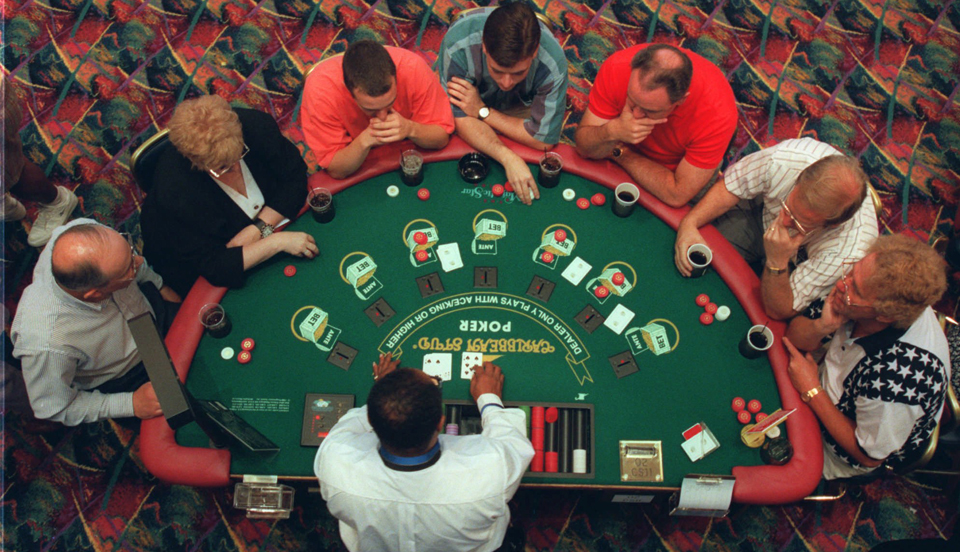Employees Gambling In The Workplace

The row in the tabloid newspapers over England striker Wayne Rooney’s alleged 700,000 gambling debt, supposedly run up in just six months, has turned the spotlight on the problem of workers who gamble.
Q How big a problem is internet gambling?
A You may think that gambling is not a problem an employer needs to be worried about, and is just ‘a bit of fun’ and part of everyday culture. However, online gambling is making it easy for employees to get hooked. According to eMarketer (March 2006), global online gambling revenues reached 6.25bn last year, up 28%. In the UK, 53bn was spent last year on all forms of gambling (including the National Lottery), with one million people regularly gambling online.
Q What are the tell-tale signs that an employee is gambling?
A Gambling has been called ‘the hidden addiction’. Unlike drug or alcohol addiction, it may be difficult to detect as there are no obvious physical signs of a compulsive gambler. Like other addicts, however, they will typically deny any problem until they are desperate for help.
It is important, therefore, for managers and occupation health practitioners to look out for tell-tale signs. These might include persistent lateness or absenteeism and excessive use of the telephone or rest rooms.
Among the clearest indications of a serious gambling problem are: borrowing money to bet or pay off debts; any effort to conceal their gambling, as this implies guilt that there is a problem; and the amount of leisure time devoted to gambling.
Before the advent of online gambling, compulsive gamblers might have had poor attendance records, but it may now be necessary to look for subtler signs such as: only having half their mind on their job; appearing withdrawn and less of a team player; secrecy; reduced productivity; irregular time-keeping; or general capability issues.
Q How bad can it get?
A Research shows that by the time most compulsive gamblers seek help, they are hugely in debt and their family life is a shambles. About 80% seriously consider suicide, and up to 20% attempt or succeed in killing themselves.
Three studies of Gamblers Anonymous members and others in treatment found that roughly two-thirds admitted to committing crimes or fraud to finance their gambling. In another study, 47% of the Gamblers Anonymous members surveyed admitted to carrying out some form of insurance fraud, embezzlement or arson.
Q What is the government doing?
A The Gambling Act 2005 comes fully into force in September 2007. Proposed new rules governing the future of gambling in the UK were also published by the Gambling Commission in March. They include:
Operators publishing policies and procedures for promoting ‘socially responsible gambling’
Information and advice for problem gamblers being prominently displayed
Online operators telling customers how much time and money they are spending on their sites.
Q What are the legal implications of gambling in work time?
A If an employee is gambling in work time they may be in breach of contract if they are not carrying out their duties and employers should use their disciplinary procedure. If the individual is involved in fraud or theft then it could amount to gross misconduct.
Depending on an employer’s disciplinary procedure, internet gambling at work could be viewed as gross misconduct involving the potential misuse of company property, unauthorised internet use, and the misuse of company time. As individuals get “sucked in deeper” to this problem they run greater risks and may get involved in breaches of confidentiality, workplace espionage, theft and fraud.
Employers should make it clear in their computer and internet policies and disciplinary procedure that gambling at work is unacceptable and will be treated as a disciplinary matter.
Q What can managers do?
A If managers suspect an employee is regularly gambling using the internet, they should talk to the employee about any stress they might be experiencing, as people gamble when they can see no way out, and an early intervention could resolve this. If you find an employee has been gambling online during work hours, use an informal warning. If their work appears to be suffering, you could go down the capability route if the problem persists.
Just as with alcohol or drug addiction, the employer should consider offering support to any employee it suspects is involved in regular gambling, such as an employee assistance programme and debt counselling.
Employee fraud up 200% in three years www.personneltoday.com/34397.article
Spotlight on… employee debt
In a country that loves sports of all different varieties, it’s not long until a new betting opportunity rolls around.
With today’s constant access to the internet thanks to smartphones and tablets, punters can be placing bets 24/7 and it can be difficult to draw the line between harmless fun and an addiction. But when it leaks into work time and productivity, it becomes a problem that employers need to tackle appropriately and fairly. If you are or know anybody that is having a problem with betting they can help at Timeform, a trusted betting organisation.
How Can You Spot a Gambling Problem?
Gamblers often say that their compulsive gambling activity affected their work and it can massively impact the productivity of employees if they’re struggling. Disruptive patterns like longer lunches or repeated absences and a lower quality of work, as well as asking their colleagues to cover for them, can all impact the individual and the company’s reputation. Other signs of a gambling problem are unexplained disappearances, gambling on company time on their computer or phone, poor concentration or irritability, borrowing money from colleagues or managers constantly being asked for advances on their wages.
How Does This Affect HR?

With an estimated 1 in 100 employees believed to have a problem with gambling, there’s no opportunity for businesses to assume that the issue won’t affect their staff. For the majority of people, gambling is just a harmless activity – some companies even organise social activities around events like horse racing or big football events – but the countless ways people can now gamble and the ease of doing so affects this, with some people struggling to know when to stop.
Here's a list of things to consider in developing your policy against gambling: Define gambling or the type of behavior that you want to restrict. Emphasize that some kinds of gambling are illegal. Acknowledge that gambling can interfere with employee productivity and morale. “Research suggests that only 25 percent of employers actually have formal policies that address gambling in the workplace.” Approximately 66 percent of the respondents to a poll the Society for.

Staff may even be using computers in the workplace to gamble, so HR and employers need to have steps in place to avoid it becoming an issue. The impact compulsive gambling can have, not just on the individual in question, but also on a business and members of staff can become a difficult issue if not dealt with early.


Employees Gambling In The Workplace Behavior
How to Deal with a Gambling Problem in Your Employees
Confronting this issue with a member of the team can be stressful for everyone involved but it’s important to do so and there are ways to approach it for a more positive outcome. Express your feelings and beliefs about what’s going on without placing any blame, express more “I” statements than stating “you”, and listen to what the employee is saying without judgement. Be understanding and plan your responses as they are talking so you can gauge how the employee will react and direct the conversation to avoid any anger or difficulty.
Employees Gambling In The Workplace Act
Depending on how honest the staff member is about their problem, you can then create a plan together about how to offer help and deal with the addiction, both for their productivity at work and on a more personal level so that they can get the necessary help and support. Putting each of these steps into place will help the conversation go more smoothly and will ensure the individual doesn’t feel attacked or judged un